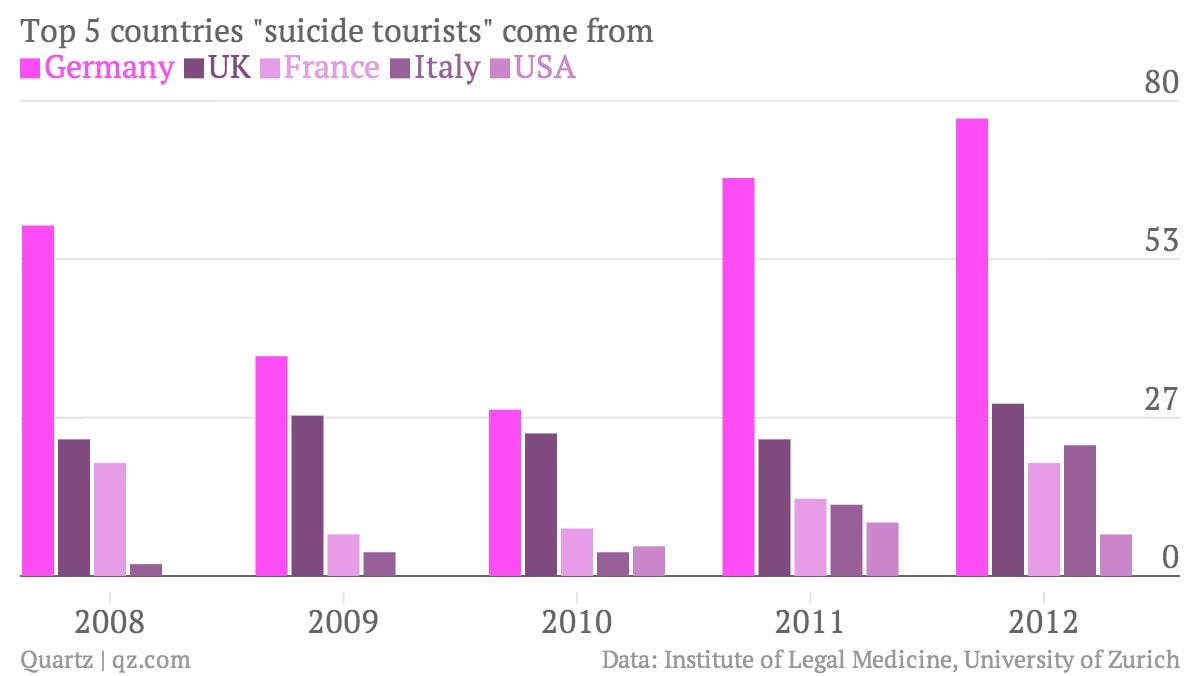Laws banning assisted suicide are prompting more people to go to Switzerland
“Going to Switzerland” might bring to mind the thrill of skiing in the Alps or boxes of delicious chocolates. But, at least in the UK, “going to Switzerland” has become a euphemism for assisted suicide.

“Going to Switzerland” might bring to mind the thrill of skiing in the Alps or boxes of delicious chocolates. But, at least in the UK, “going to Switzerland” has become a euphemism for assisted suicide.
Switzerland is one of a handful of places in the world—including the Netherlands and the state of Oregon in the US—that actually allow assisted suicides—and the numbers are rising. A recent pilot study by researchers at the University of Zurich looked into the number of aided suicides of non-Swiss citizens and residents logged into Zurich’s Institute of Legal Medicine database between 2008 and 2012. They found that what they call “suicide tourism” had doubled over four years, and totaled 611 cases.
Switzerland has six right-to-die organizations that help approximately 600 people a year, some of which have physicians aiding suicides, while others not. Dignitas, the largest of these organizations, is operated by a team of medical and legal consultants, not physicians. Four of these organizations help foreigners and assist with 150 to 200 suicides annually.
The top five countries of origin were Germany (268 suicides), the UK (126), France (66), Italy (44), and the USA (21). Also in the top 10 were Austria (14), Canada (12), Spain (8), Israel (8), and Australia (5).

As for why this is happening, Dr. Julian Mausbach said that laws and regulations making assisted suicide difficult in other countries may be a factor. The UK and Italy have simply banned it while Luxembourg and the US states of Washington and Montana allow assisted suicides only if the patient is terminally ill.
In Germany, there aren’t specific laws regarding assisted suicides in the criminal code, but the code of conduct followed by the country’s medical association forbids doctors from helping people commit suicide. Doctors may also be held criminally liable if they witness a suicide and fail to start resuscitation procedures. And in France, prompting someone to commit suicide is illegal and punishable with up to three years in prison. As in Germany, doctors in France can be held criminally liable if they don’t try to resuscitate a person attempting suicide.
This stands in stark contrast to Switzerland’s penal code, which doesn’t require that someone seeking assisted suicide be terminally ill or in the last stages of life, though it does stipulate that “any person who for selfish motives incites or assists another to commit or attempt to commit suicide” can be fined or jailed for up to five years.